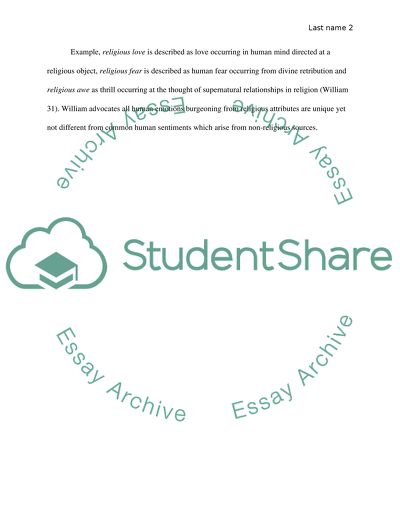Cite this document
(“William James: Varieties of Religious Experience Essay”, n.d.)
Retrieved from https://studentshare.org/philosophy/1458018-william-james-varieties-of-religious-experience
Retrieved from https://studentshare.org/philosophy/1458018-william-james-varieties-of-religious-experience
(William James: Varieties of Religious Experience Essay)
https://studentshare.org/philosophy/1458018-william-james-varieties-of-religious-experience.
https://studentshare.org/philosophy/1458018-william-james-varieties-of-religious-experience.
“William James: Varieties of Religious Experience Essay”, n.d. https://studentshare.org/philosophy/1458018-william-james-varieties-of-religious-experience.


